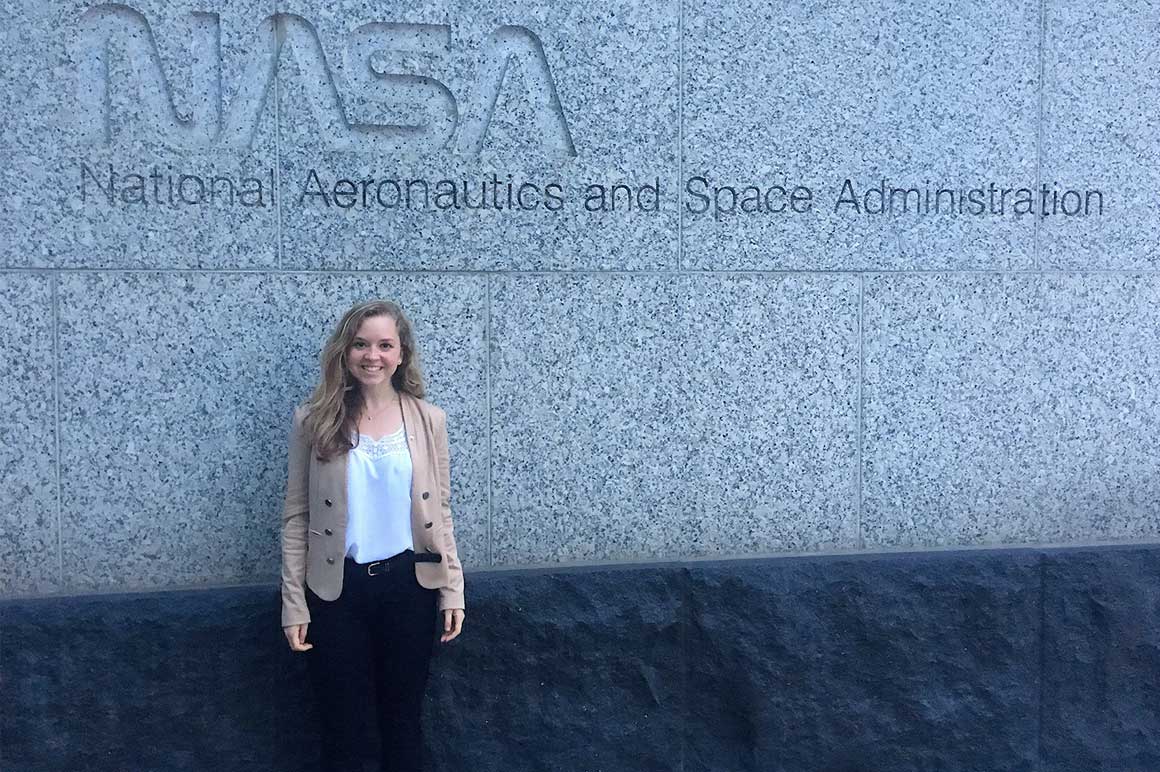Exploring Microgravity to Improve Public Health

August 27, 2018
While staying calm and collected, Gillian Terlecky conveys her deep passion for public health research and policy. Her undergraduate experience at Dornsife, so far, has opened unique and impactful doors. She has leveraged the power of the Drexel connection and successfully attained a skill set that will serve her through senior year and her career.
During her co-op 101 course, Terlecky was encouraged to explore nontraditional opportunities for experiential learning. “At the time, I was intrigued by NASA and what it takes to become an astronaut,” shared Terlecky. She soon discovered that NASA had many public health programs and initiatives. Beyond exploring outer space, NASA is committed to public safety, particularly regarding infectious disease, emergency preparedness and response, and environmental health issues.
Soon after this discovery, Terlecky utilized LinkedIn to connect with any and every Drexel University alumni who worked for NASA. To her surprise, a Drexel graduate reached out to offer some wisdom and advice. “I didn't have any expectations upon making these connections,” said Terlecky. “I was just focusing on building my profile.” This connection eventually led to a specialized co-op opportunity in the NASA Office of the Chief Health and Medical Officer (OCHMO).
Terlecky supports NASA and their microgravity disease research efforts, specifically studying salmonella, heart, and Parkinson's diseases. What is microgravity research? Conducting experiments in a microgravity environment has the potential for discoveries that can both improve health on earth and advance our understanding of outer space. She compiles health and economic statistic reports, as well as presents cost-benefit analyses of microgravity research to ensure the success and feasibility of this important work. NASA provides data that may impact disease modeling, drug discovery, and cell therapy. “They are a leader in preventive-health research, which is at the forefront of public and global health objectives,” said Terlecky.
The co-op has given Terlecky confidence in her abilities and real-world experience. From traveling to Washington D.C. to Skype conference calls from her apartment, she has become more independent and self-sufficient. She explains her co-op experience as an opportunity to “get comfortable being uncomfortable” which led to tremendous personal and professional growth.
In the future, she wants to continue her education, potentially obtain a law degree and become a health policy expert. “I want to continue to focus on preventive measures and what drives the health of populations as opposed to treating people,” shares Terlecky. Leveraging the power of connection proved to be a worthwhile endeavor and she looks forward to paying it forward once she is an alumnus.